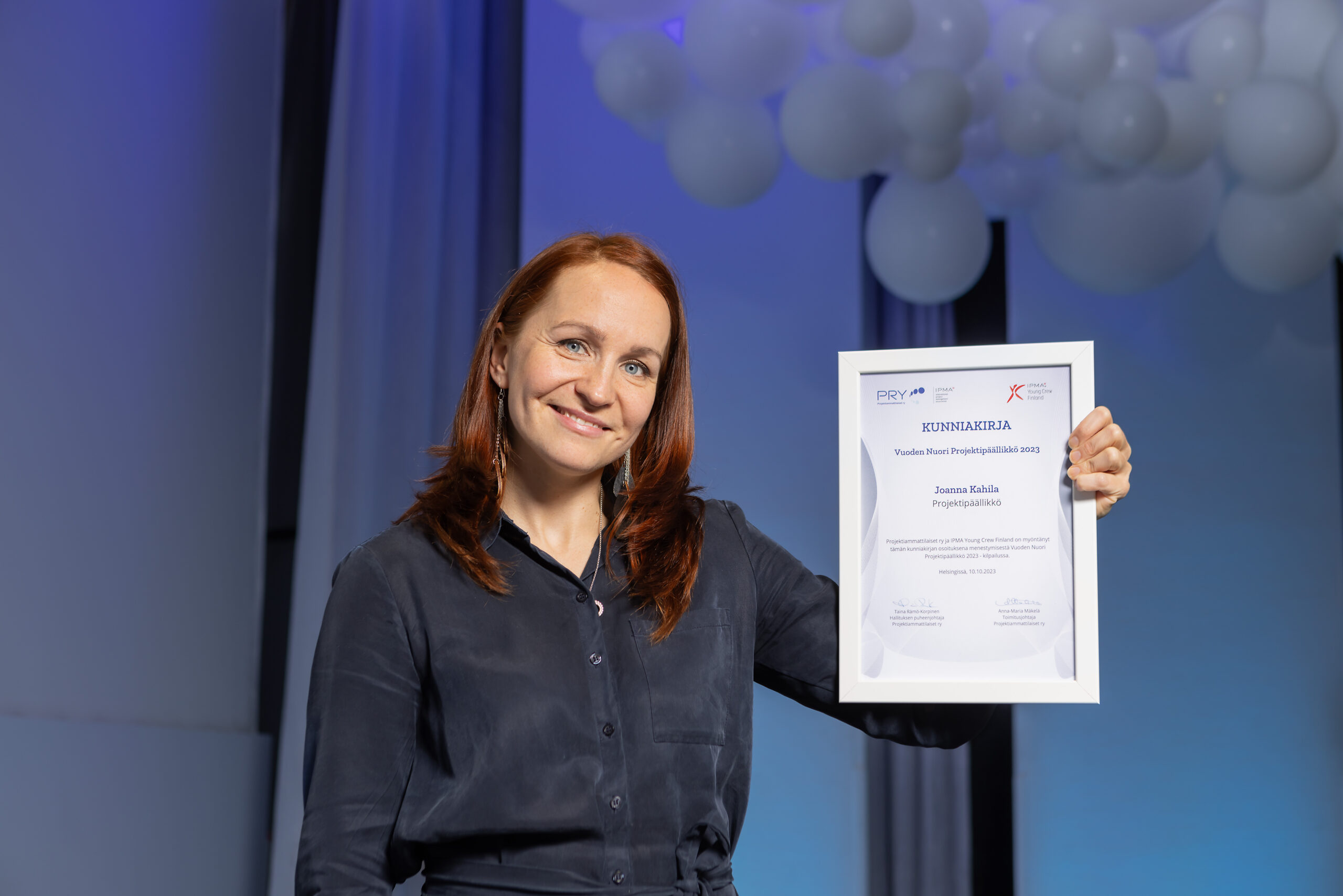The importance of career and learning paths in project management has once again emerged as a key theme in many organizations. Organizations must be able to provide project professionals with clear career paths and to support learning solutions that generate the necessary impact in strategically important areas of competence. It seems that project managers often lack structured learning paths and training mainly focuses on content knowledge or specific areas of project management.
Project management is a profession, and in many organizations, it is also a role that can be assigned under various job titles. It can be seen as a job family – a natural basis to build a career path for project professionals.
Teksti Jori Kosonen
Kuvat Jori Kosonen

Demand career and training path from your organization
The “project professional competencies” refers to a comprehensive set of critical competences such as self-leadership, people leadership, negotiation skills, communication and influencing skills, coaching, digital skills including utilization of AI, change management capabilities, customer relationship management and experience.
There is a strong link between career paths and learning paths. A learning path is a planned and structured way to ensure and verify competence of growth in a specific skill or subject. It helps the learner to develop step by step towards a goal (such as a role, responsibility or competence level) – for example, becoming a project manager or achieving a specific certification.
It is time to reform learning path strategies
Project management has traditionally focused on certain knowledge-based methodologies and certifications (e.g., Waterfall, Lean). However, today’s business world demands much more: agility, resilience, emotional intelligence, and stakeholder collaboration.
Why is change necessary? Core PM skills (project lifecycle management, scope, cost, time) remain essential, but they are not anymore sufficient. Digitality requires leaders to manage remote teams, digital collaboration tools, and cultures. Younger professionals expect learning to be flexible, personalized and purposeful, demanding clarity of learning paths aligned with growth opportunities. Value creation is first priority – projects must demonstrate strong leadership, strategic impact, not just deliverables.
The future of project development paths lies in modular, evolving, and experience-based learning frameworks that combine technical, behavioral, and contextual competences.
Modern framework integrates PMI, IPMA and consulting expertise
PMI principles as a foundation. The PMI model (the standard for project management) provides a solid backbone throughout more process orientation. However, it needs to be adapted to fulfill the modern requirements: to integrate project management principles to emphasize more competence, stakeholder alignment, and value to clients and other stakeholders.
IPMA’s focus is on interpersonal skills. The IPMA Individual Competence Baseline introduces three competence areas: Perspective (strategy, governance, culture), People (leadership, teamwork, negotiation) and Practice (methods, tools, requirements). These dimensions create a more holistic view of the project manager as a leader and change agent, not just as a manager. To be competitive, organizations should bring broadly external interim leaders and transformation consultants to navigate cultural change, with clear mandate and role. Leadership development experts, coaches to build resilience and adaptive capacity. For digital change organizations may need technology advisors for digital collaboration tools and AI-enabled Project Management. Such expertise accelerates internal capability building and provides benchmarking based on versatile industry practices.
Tailored learning paths for project roles across career stages
To support continuous professional development, learning paths must be based on career phases and role maturity. An example for a four-level model based on IPMA standards is shown on the table below.
Creating impactful and resilient project professionals
The future of project leadership needs more than just mastering frameworks. Success is based on developing adaptive, emotionally intelligent professionals who can navigate uncertainty, technology shifts, and human dynamics. By developing learning paths to integrate project management process architecture, IPMA’s interpersonal skills and the agility offered by consulting partnerships, we at Talent Network can offer the most effective tools for meaningful and successful business transformations. Organizations need to create these new paths and include continuous learning into project cultures — because winning culture requires organizations to meet the expectations of future capabilities, skills and results.



